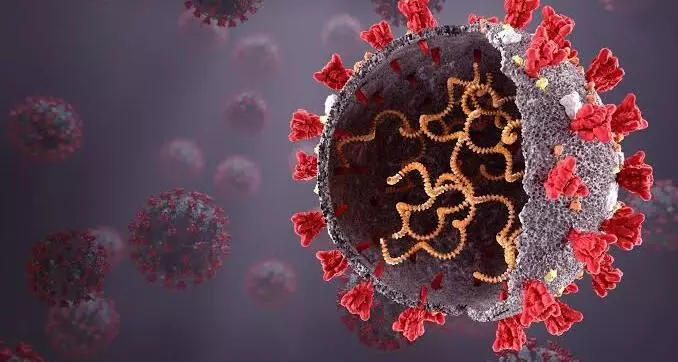
Measuring viral RNA may help predict which Covid patients are at fatal risks: Study
text_fieldsToronto: A recent study by a team of researches have found that measuring the amount of a SARS-CoV-2 genetic material -- viral RNA -- in the blood can be used to identify infected patients who are most at risk of dying of Covid-19.
The findings come at a time when doctors are struggling to identify patients most at risk of dying of the disease despite the advances in the management of Covid-19
With the findings, doctors will now be able to offer new treatments to the Covid infected patients.
As per a report by IANS, a team led by Universite de Montreal developed a statistical model which uses a blood biomarker of SARS-CoV-2 to identify infected patients who are most at risk of dying of Covid-19.
They used blood samples collected from 279 patients during their hospitalisation for Covid-19, ranging in degrees of severity from moderate to critical, the team measured amounts of inflammatory proteins, looking for any that stood out.
The finding is published in the journal Science Advances.
"In our study, we were able to determine which biomarkers are predictors of mortality in the 60 days following the onset of symptoms," said medical professor Dr Daniel Kaufmann.
The team also measured the amounts of viral RNA and the levels of antibodies targeting the virus. Samples were collected 11 days after the onset of symptoms and patients were monitored for a minimum of 60 days after that.
"Among all of the biomarkers we evaluated, we showed that the amount of viral RNA in the blood was directly associated with mortality and provided the best predictive response, once our model was adjusted for the age and sex of the patient," said Elsa Brunet-Ratnasingham, a doctoral student in Kaufmann's lab.
"We even found that including additional biomarkers did not improve predictive quality," she added.
To confirm its effectiveness, Kaufmann and Brunet-Ratnasingham tested the model on two independent cohorts of infected patients from during the first wave of the pandemic and then during the second and third waves.
It made no difference which hospital the patients were treated at, nor which period of the pandemic they fell into: in all cases, the predictive model worked.






















